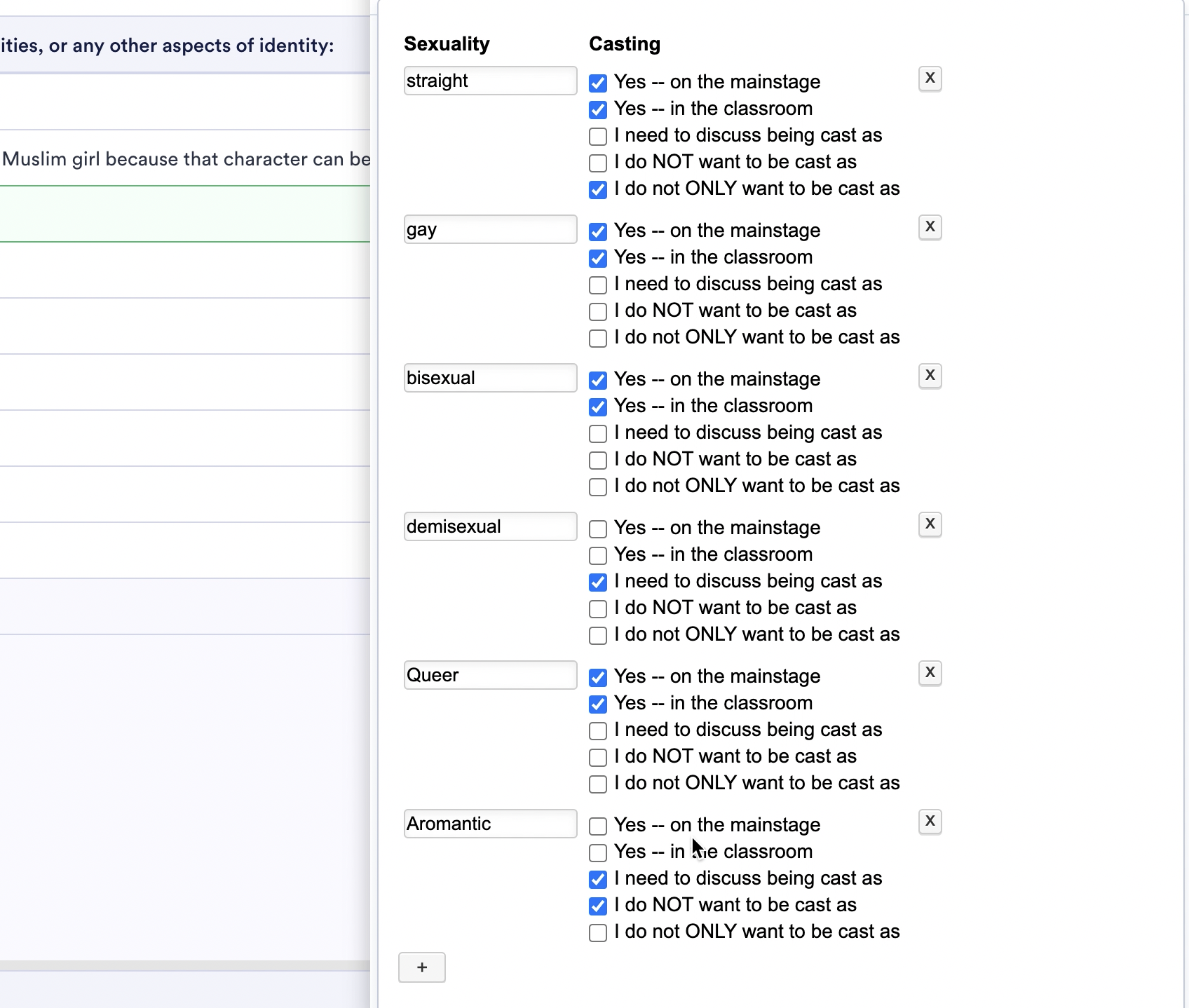Community
Connection and service to my community is of vital importance and priority to me. I believe passionately that the arts and artists have the skills and capacity to better the world around them. I also believe that reaching out and serving someone outside one’s day-to-day circle is deeply healthy when working an insular world such as theatre or education. I feel that a strong public service element in our professional practice or artistic training provides us with a framework to use our passion and skills to make immediate impact and tangible human connection, which can be both artistically fulfilling and can also provide significant personal, mental, and emotional wellness.
Community includes the immediate community of my campus. I have served on internal committees that don’t sound very exciting, but are hugely impactful to our day-to day lives.
I volunteered to be part of both the attendance policy committee and the scheduling committee for the UNCSA School of Drama. I was also part of the the internal Equity, Diversity, Inclusion, and Belonging — a voluntary mixed student and faculty committee. I headed a sub-group on paperwork, and at the end of the 2019-2020 school year, we launched a form for students to voluntarily disclose any aspects of their identities that they wanted taken into consideration during season selection and casting. I maintained and updated that form every year until I left the program in 2024.
As public service coordinator for the UNCSA School of Drama, I supported student projects that come up as well. Some projects of note include: a benefit concert for children’s cancer quality of life programs at Brenner Children’s Hospital and an original devised production of The Lost Boys Present: Peter Pan for local Title-1 third grade classes, coordinated specifically for their curriculum.
During my service with ArtistCorps, beginning in the fall of 2016, I served across a wide variety of sites in Forsyth county, largely in arts instruction and in arts integration, which is the craft of teaching standard curriculum through high-quality arts education. The Wolf Method is by far my largest project, but other projects of note include: a drama residency in Title-1 second grade classrooms, a semester-long project where each of six third-grade classrooms collaboratively wrote and performed a hero’s journey as a puppet show, a dual-language production of Horton Hears a Who! filmed over Zoom for the annual Martin Luther King Jr. Day Read-In, weekly arts sessions at the battered women’s shelter, and a year’s integration classes for two kindergarten classes at Ashely Elementary School — at the time ranked the lowest performing elementary school in the state.


















